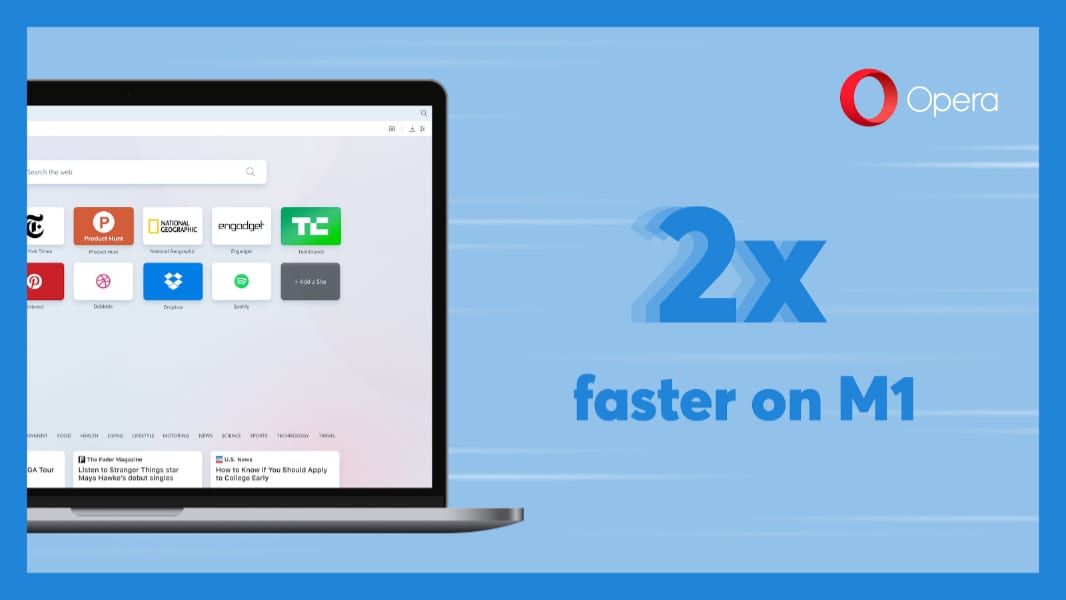Opera Says Its Browser Runs 2X Faster on M1
- Paul Thurrott
- Apr 01, 2021
-
14

Opera today announced the availability of the first M1-native version of its flagship browser, and it’s claiming that it’s two times faster than the previous version.
“When you buy a shiny new Mac, one of your key priorities is speed: you want it to load and run apps as smoothly as it can, and you want to be impressed by how seamless the experience is,” Opera’s Julia Szyndzielorz writes. “While marveling at your crisper than ever display, you also want to browse the web with freshness and speed inspired by your brand spanking new Mac. Apple wants you to be happy, and so does Opera, which is why we’ve made your browsing on Macs with M1 even faster.”
Windows Intelligence In Your Inbox
Sign up for our new free newsletter to get three time-saving tips each Friday — and get free copies of Paul Thurrott's Windows 11 and Windows 10 Field Guides (normally $9.99) as a special welcome gift!
"*" indicates required fields
It’s not clear where Opera got the 2X number. Other companies, like Adobe, only claim significant gains of up to 1.5X in certain operations while noting that everything “seems” faster. But that’s not the only change in the new browser: Opera says that it also added customizable keyboard shortcuts for Flow, including those for Opera’s built-in Crypto Wallet.
You can learn more about the changes in Opera 75 in the changelog.